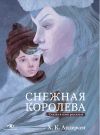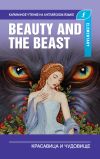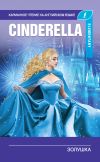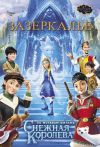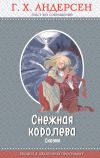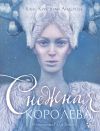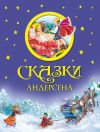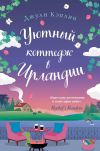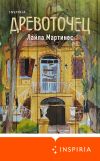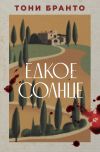Текст книги "Снежная королева / The Snow Queen"
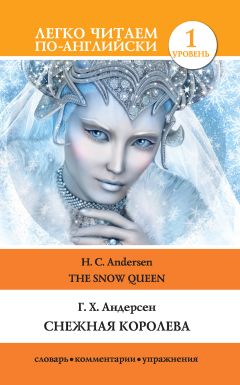
Автор книги: Ганс Христиан Андерсен
Жанр: Иностранные языки, Наука и Образование
Возрастные ограничения: +6
сообщить о неприемлемом содержимом
Текущая страница: 1 (всего у книги 3 страниц) [доступный отрывок для чтения: 1 страниц]
Ганс Христиан Андерсон / Hans Christian Andersen
Снежная королева / The Snow Queen
© ООО «Издательство АСТ»
Story the First
Which Tells of the Looking-Glass and the Bits of It
Attention, please, we’re going to begin. When we’ve got to the end of the story we shall know more than we do now. Once there was a wicked troll. He had made a looking-glass which had this property: everything good and pretty that was reflected in it became bad and ugly. And everything that was no good came out even worse[1]1
everything that was no good came out even worse – все, что уже было плохим, становилось еще хуже
[Закрыть]. The most beautiful landscapes looked like boiled spinach, and the best of men grew hideous. Their faces were so distorted that they couldn’t be recognized. It was very funny, the troll said. He couldn’t help but laugh at his clever invention. Everyone who attended the troll school (for he kept a troll school) spread the news all about that miracle looking-glass: you could now see, they said, what the world and mankind really looked like. They ran about everywhere with the glass, and at last there wasn’t a country or a person left who hadn’t been distorted in it. After that they decided to fly up to heaven itself and make fun of the angels. The higher they flew with the glass, the more it grimaced. Up and up they flew, and then the glass grimaced so hard that it fell out of their hands and to the ground. It broke into millions of tiny pieces. Some of them were as big as a grain of sand. They flew around the wide world, and when they got into peoples’ eyes, they stuck there, and from that moment the people saw everything crooked and only looked for the bad things[2]2
from that moment the people saw everything crooked and only looked for bad things – и с этого момента люди видели все искаженно и всегда искали изъяны
[Закрыть]. Every little splinter of the glass had kept the same power that the whole glass had. Some people got a little bit of the glass into their hearts, and that was horrible, for their hearts became just like a lump of ice. Some of the pieces were so big that they were used for window glass. Other pieces were made into glasses, and that was a bad thing, if people put them on in order to see correctly and judge rightly. The evil troll laughed at this, for it was very amusing to him. And out in the world little bits of glass were still flying in the air.
Now you shall hear what happened with some of them.
Story the Second
A Little Boy and a Little Girl
In the big town, where there are so many houses and people that there isn’t enough room for everybody to have a little garden, and where most people have to grow flowers in pots, there were two poor children. They weren’t brother and sister, but they were as fond of each other as if they had been[3]3
but they were as fond of each other as if they had been – но они так любили друг друга, как будто бы они были [братом и сестрой]
[Закрыть]. Their parents were near neighbours, living in two attics, where the roof of the one house touched the other: a small window in each house faced the other; you could get from one window to the other in one step.
The parents had, each of them, a large wooden box outside the window, and in it grew kitchen herbs which they used, and also a little rose tree; there was one in each box, and they flourished wonderfully[4]4
flourished wonderfully – прекрасно цвели
[Закрыть]. Then the parents thought of putting the boxes across the gutter[5]5
across the gutter – поперек сточной трубы
[Закрыть] in such a way that they reached almost from the one window to the other and really looked like two bunches of flowers. The pea plants hung down over the boxes, and the rose trees twined about the windows and bent over to meet each other, and made almost an arch of leaves and blossoms. The boxes were very high up, and the children knew they must not climb up into them, but they were often allowed to get out to meet each other and sit on their little stools beneath the roses, and there they used to play very happily.
In winter, of course, that pleasure was gone. The windows were often quite frozen over; but then they would heat copper pennies on the stove, and then put the hot pennies on the frosty window, and this made a small peep-hole, one out of each window; the little boy’s and the little girl’s. The boy’s name was Kay and the girl’s name was Gerda.
“Those are the white bees swarming,” said the old grandmother once in winter, looking at the falling snow.
“Have they got a queen too?” asked the little boy—for he knew that the real bees have one. “Indeed, they have,” said grandmother, “she is the biggest of them all, and she never stays still on the ground, but flies up into the black cloud. At winter nights she flies through the streets of the town and looks in the windows, and then they freeze into wonderful patterns, like flowers.”
“Can the Snow Queen get in here?” asked the little girl.
“Let her come!” said the boy, “and I’ll put her on the hot stove and she’ll melt.”
One evening, when little Kay was at home, he climbed up on the stool by the window and peeped through the little hole. A few snowflakes were falling outside, and one of them, the biggest of them all, was lying in a corner of one of the flower-boxes. It grew larger and larger, and at last turned into a lady, dressed in a white dress, which seemed to be made out of millions of snowflakes. She was very pretty and delicate, and she was made from ice, but she was alive. Her eyes were like two bright stars, but there was no rest or quietness in them. She nodded towards the window and beckoned with her hand. The little boy was frightened and jumped down off the stool.
Next day was clear and frosty, and after that came spring-time; the swallows built their nests, the windows were open, and the children sat once more in their little garden.
What lovely summer days were those, and how nice it was to be out among the fresh rose bushes!
Kay and Gerda were looking at a picture book with beasts and birds in it, and then—just as the clock in the great church tower was striking five—Kay said, “Oh! Something pricked my heart, and I’ve just got something in my eye!”
The little girl put her arm round his neck, and he winked his eye[6]6
he winked his eye —он моргнул
[Закрыть], but no, there was nothing to be seen. “I think it’s gone,” he said, but it wasn’t. It was one of those tiny bits of the troll-glass. Poor Kay! He had got a piece of it right into his heart, and it started to turn into ice.
“What are you crying for?” he asked. “It makes you look ugly!” Then he looked at the roses. “That rose is worm-eaten! And look at that other, it’s all crooked. Rotten roses they are, after all, like the boxes they’re in.[7]7
Rotten roses they are, after all, like the boxes they’re in. – Все таки эти розы гнилые, как и коробки, в которых они растут.
[Закрыть]” With that he gave the box a hard kick and pulled off the two roses. “What are you doing, Kay?” cried the little girl; and when he saw she was frightened, he pulled off a third rose, and ran home, leaving dear little Gerda. Later, when she brought him the picture book, he said, “it was only fit for babies”, and when grandmother told them stories, he was always interrupting. The bit of glass he had got in his eye and the bit he had in his heart made him tease everyone, even little Gerda, who loved him with all her heart.
One winter day, Kay came in with his sledge hung on his back; he shouted to Gerda, “I’m going to the big square where the others are playing,” and he was off.
Out there in the square the boldest of the boys often used to tie their sledges to a farmer’s cart and drive a good long way[8]8
a good long way – довольно далеко
[Закрыть] with it. It was excellent fun. This time, a large sledge came by; it was painted white all over, and in it was someone wrapped in white fur and wearing a white cap. This sledge drove twice round the square, and little Kay tied his own little sledge to it, and drove off with it. Faster and faster it went, into the next street. The driver turned his head and nodded to Kay in a friendly way; it seemed as if they knew each other. Every time Kay thought of loosing his sledge the driver nodded again, so Kay stayed where he was: and they drove right out through the town gate. Then the snow began to fall so thick that the boy couldn’t see anything; and he tried to untie the rope so as to let go[9]9
so as to let go – чтобы отпустить
[Закрыть] of the big sledge. But it made no difference, his sledge was tied well, and it went like the wind. He called out loudly, but no one heard, and the snow drifted down and the sledge flew onward. He was very scared.
Suddenly the storm stopped, the big sledge pulled up[10]10
pulled up – остановилась
[Закрыть], and the person who was driving in it rose. The fur and the cap were all of snow: it was a lady, tall and shining white—the Snow Queen.
“We have travelled well,” said she; “but you mustn’t freeze. Creep into my bearskin.” She put him beside her in the sledge. “Are you still cold?” she asked, and kissed him on the forehead. It was colder than ice, and struck straight to his heart. And after that, he didn’t notice the cold anymore.
Once more the Snow Queen kissed Kay, and he had forgotten little Gerda and grandmother and everyone at home.
“No more kisses now,” said she, “or I should kiss you to death.” Kay looked at her; she was very pretty. She wasn’t scary anymore. In his eyes she was perfect, and he felt no fear. Kay looked at the immense spaces of the air[11]11
immense spaces of the air – громадные пустоты воздуха
[Закрыть], and they flew high among the dark clouds, and the storm wind whistled and roared as if it were singing old ballads. They flew over forest and lake, sea and land: below them the wolves howled; above them flew the black crows, and over all shone the moon[12]12
over all shone the moon – все вокруг освещала Луна
[Закрыть], large and bright.
Exercises
1.1. Translate into Russian.
attention, attic, blossom, copper, frosty, gutter, herbs, immense, mankind, sledge, snowflake, splinter, temper, to creep, to distort, to grimace, to judge, to swarm, to twine, troll
1.2. Answer the questions.
1. What is the looking-glass?
2. What happened to the looking-glass?
3. What were the names of the boy and the girl?
4. Were the children brother and sister?
5. Which flowers did the parents grow in their boxes?
6. Who told the children about the Snow Queen?
7. When did the pieces of looking glass got into the boys, eye and heart?
8. What was the boy going to do at the big square?
9. Who drove the large white sledge?
10. When did the boy meet the Snow Queen for the first time?
1.3. Insert the right prepositions (about, after, at, for, in, into, on, to, with).
1. Everyone spread the news all ______ the miracle looking glass.
2. It was very amusing _________ him.
3. And _____________ that, he didn’t notice the cold anymore.
4. Everything good and pretty that was reflected _________ it became bad and ugly.
5. They would heat copper pennies _____________ the stove.
6. Kay and Gerda were sitting looking _____________ a picture book.
7. She nodded towards the window and beckoned _____________ her hand.
8. It broke _____________ millions of tiny pieces.
9. There isn’t enough room ___________ everybody to have a little garden.
10. Now we are going to hear all _____________ it.
1.4. Complete the sentences using the words below.
millions • high • bees • excellent • wicked • window • boxes • wonderful • swallows • stricking
1. Those are white _______ swarming.
2. It was _____________ fun.
3. It broke into _____________ of tiny pieces.
4. Once there was a __________ troll.
5. You could get from one ____________ to the other in one step.
6. The pea plants hung down over the _____________.
7. They freeze into ___________ patterns.
8. The ____________ built their nests.
9. The clock in the great church tower was _____________ five.
10. They flew _____________ among the dark clouds.
1.5. True or false?
1. The troll broke the magic looking-glass.
2. Kay got pieces of the looking-glass in his eye and in his heart.
3. Gerda lived far away from Kay.
4. Gerda saw the Snow Queen first.
5. Kay tied his sledge to the Snow Queen’s.
6. The children’s parents had a garden where they grew roses.
7. The Snow Queen kissed Kay twice.
8. The wicked troll kept a school.
9. The children weren’t allowed to play under the roses.
10. The glass made Kay tease everyone but Gerda.
Story the Third
The Flower Garden of the Old Woman who knew Magic
But how fared little Gerda when Kay didn’t came back? Nobody knew where he was, nobody could tell. The boys could only say they had seen him tie his little sledge to another large one which had driven down the street and out at the town gate. Many tears were shed. Then they said he was dead, drowned in the river. Dark indeed and long were those winter days.
Then came spring with warmer sunshine.
“Kay is dead and gone,” said little Gerda.
“I don’t believe it,” said the Sunshine.
“He’s dead and gone,” said she to the swallows.
“We don’t believe it,” they answered, and at last little Gerda didn’t believe it either.
“I’ll put on my new red shoes,” she said one morning early, “the ones Kay has never seen, and I’ll go down to the river and ask about him.”
It was quite early. She kissed her old grandmother as she slept, put on the red shoes, and went out of the gate to the river, quite alone[13]13
quite alone – совсем одна
[Закрыть].
“Is it true that you have taken Kay? I’ll give you my red shoes if you’ll give him back to me.”
The waves, she thought, nodded to her; so she took her red shoes, the most precious thing she had, and threw them into the river, but they fell close to the bank, and the waves carried them back to her. It seemed that the river would not take them because it didn’t have little Kay. But Gerda thought she hadn’t thrown the shoes far enough, so she climbed into a boat that lay near the water, and went out to the further end of it and threw out the shoes. But the boat wasn’t tied down, and with the movement she made it floated away from the shore. She noticed this and tried to get out, but before she could get back the boat was too far away, and began to drift quickly. Little Gerda was very much frightened and began to cry; but nobody heard her except the sparrows, and they couldn’t carry her ashore; but they flew along the bank and sang, as if to comfort her: “Here we are, here we are!” The boat was carried downstream; little Gerda sat still; her little red shoes floated behind, but couldn’t reach the boat[14]14
couldn’t reach the boat – не могли догнать лодку
[Закрыть], which was now travelling faster.
Both banks were very pretty, with beautiful flowers, old trees, and sloping fields with sheep and cows; but there weren’t any people to be seen.
“Perhaps the river will carry me to Kay,” thought Gerda. At last the boat came to a large cherry orchard, in which was a little house with blue and red windows, and outside two wooden soldiers, who were protecting it. Gerda called to them, thinking they were alive: but very naturally[15]15
very naturally – естественно
[Закрыть] they didn’t answer. The river carried the boat straight towards the shore. Gerda called out louder, and out of the house came a very old woman with a walking stick. She had a large sun-hat on, painted with the most splendid flowers.
“Poor dear little child,” said the old woman, “how ever did you get out here on this great big river, far out into the wide world?[16]16
far out into the wide world – так далеко от дома
[Закрыть]” And with that the old woman stepped into the water and hooked her stick to the boat and pulled it ashore[17]17
pulled it ashore – притянула ее к берегу
[Закрыть] and lifted little Gerda out. Gerda was glad to be on dry land again, but she was a little afraid. “Come now, and tell me who you are, and how you got here,” said the old woman. When Gerda had told her everything and asked if she had seen little Kay, the woman said he hadn’t passed that way, but he would come, sure enough, and she wasn’t to be worried, but must taste her cherries, and look at her flowers. Then she took Gerda by the hand, and they went into the little house, and the old woman locked the door.
The windows in the house were placed very high up[18]18
were placed very high up – находились очень высоко
[Закрыть], and the glass in them was red and blue and yellow. The daylight shone very oddly through them; but on the table were the most beautiful cherries, and Gerda ate as many as she liked; and while she was eating, the old woman combed her hair with a gold comb.
“I’ve always wanted a sweet little girl like you,” said the old woman, “you’ll see how well we two shall get on[19]19
how well we two shall get on – как хорошо мы с тобой поладим
[Закрыть],” and all the time she was combing little Gerda’s hair Gerda was forgetting more and more about Kay: for the old woman was skilled in witchcraft. She wasn’t a wicked witch, she only used witchcraft a little, for her own pleasure, and she wanted very much to keep little Gerda.
Later, the old woman went out into the garden and stretched out her stick towards all the rose bushes: and though they were all blooming beautifully, they all sank down into the earth[20]20
they all sank down into the earth – они все ушли под землю
[Закрыть] and you couldn’t see where they had been. The old woman was afraid that when Gerda saw the roses she would think of her own roses, and then remember little Kay and run away.
Then she took Gerda out into the flower garden. What beauty was there! All the flowers one could think of stood there in their full bloom. Gerda jumped with joy and played till the sun set behind the tall cherry trees. Then she went to sleep in a lovely bed with red silk pillows.
Next day she played among the flowers again in the hot sunshine; and so many days went by. Gerda knew every flower, but even thought there were so many of them in the garden, she thought that one was missing, but she didn’t know which. Then, one day she was sitting looking at the old woman’s sun-hat with the flowers painted on it, and the prettiest of all that were there was a rose. The old woman forgot to take it away from her hat. “Why!” said Gerda, “aren’t there any roses?” And she ran around the garden and looked and looked, but there were none to be found. Then she sat down and cried; but her tears fell exactly on the spot where a rose bush was, and when the tears wetted the ground, it rose up all at once[21]21
it rose up all at once – он тут же вылез из-под земли
[Закрыть], blossoming.
“Oh, what am I doing?” said the little girl. “I was to find Kay—do you know where he is?” she asked the roses, “do you think he’s dead and gone?” “Dead he isn’t,” said the roses. “We’ve been down in the ground where all the dead people are, but Kay wasn’t there.”
“Thank you,” said little Gerda, and went off to the other flowers and looked into their cups and asked: “Do you know where little Kay is?”
But every flower was standing in the sun and dreaming its own story; none of them knew anything about Kay.
What said the tiger lily?
“Do you hear the drum! Boom! Boom! An Indian woman stands on the pyre in her long red robe, and the flames rise round her and her dead husband. But the woman is thinking of the living one who stands there in the circle. His eyes burn hotter than the flames, their fire pierces closer to her heart. Can the heart’s flame perish in the flames of the pyre?”
“I don’t understand,” said little Gerda.
“That’s my story,” said the tiger lily.
What says the bindweed?
“High above the narrow field-path stands an ancient castle. Thick vines grow over the old red walls, leaf on leaf, up to the balcony, and there stands a fair maiden. She bends over and looks down upon the road. There is no one more beautiful and graceful than she. How her silken skirt rustles! Is he coming?”
“Are you talking about Kay?” asked little Gerda.
“I’m only talking of my story, my dream,” the bindweed answered.
What says the little snowdrop?
“Between the trees a swing hangs on the ropes. Two pretty little girls—their clothes white as snow, and long green silk ribbons on their hats—are sitting and swinging. Their brother, who is bigger than they, is standing up in the swing, with his arm round the ropes to steady himself. In one hand he has a little saucer and in the other a clay pipe, and he’s blowing soap bubbles. The bubbles float with lovely changing colours. The little black dog wants to get into the swing too; it flies past, he falls down, and barks, and is angry. They laugh at him. The bubbles burst. That is my song.”
“I suppose it’s very pretty, but you say it so sadly, and you never mention Kay.”
What do the hyacinths say?
“There were three fair sisters, delicate and fine. The robe of one was red, the second’s robe was blue, and the third’s robe was white. They danced by the lake in the bright moonlight. Then came a waft of a smell, and the maidens vanished in the forest. The smell grew stronger. Three coffins glided over the lake, and in them lay the maidens. Fireflies flew around them like tiny evening lamps. Are the maidens dead or are they asleep? The scent of the flowers tells that they are dead.”
“Ugh!” said little Gerda. “Your scent is so strong, I can’t help thinking of the dead maidens. Oh, dear! Is little Kay really dead? The roses have been down in the ground and they say ‘No’.”
“Ding, dong!” rang out the hyacinth bells. “We’re not ringing for little Kay, we don’t know him, we’re only singing our own song, the only one we know.”
So Gerda went to the buttercup. “You’re a bright little sun,” said Gerda; “tell me if you know where I can find Kay.” The buttercup looked back at Gerda.
“In a little yard the sun was shining warm on the first day of spring; its beams crept down the neighbour’s white wall. The old grandmother was in her chair; her pretty granddaughter, the poor servant maid, came home to visit, and gave her grandmother a kiss. There was gold, beautiful gold in that kiss, gold on the lips, gold in the heart. Look, that’s my little story,” said the buttercup.
“Oh, my poor old granny!” sighed Gerda. “Yes, she must miss me, and she must be unhappy about me, as she was about little Kay. But I’ll soon be home again and bring Kay with me. It’s no good asking the flowers; they tell me nothing.”
Gerda ran to the border of the garden; the door was locked, but she twisted at the rusty staple till it came away, and the door flew open, and Gerda ran out barefoot into the wide world. She looked back, but there was nobody coming after her. Eventually she could run no further, and sat down on a big stone, and when she looked about her[22]22
when she looked about her – когда она оглянулась
[Закрыть], she saw, that summer was over and it was late autumn.
“Good heavens!” said the Gerda. “It’s autumn now. I shouldn’t rest a minute!” So she got up and went on.
He little feet were bruised and tired, and it was cold and raw all round! How grey and dismal it was out in the wide world!
Внимание! Это не конец книги.
Если начало книги вам понравилось, то полную версию можно приобрести у нашего партнёра - распространителя легального контента. Поддержите автора!Правообладателям!
Данное произведение размещено по согласованию с ООО "ЛитРес" (20% исходного текста). Если размещение книги нарушает чьи-либо права, то сообщите об этом.Читателям!
Оплатили, но не знаете что делать дальше?